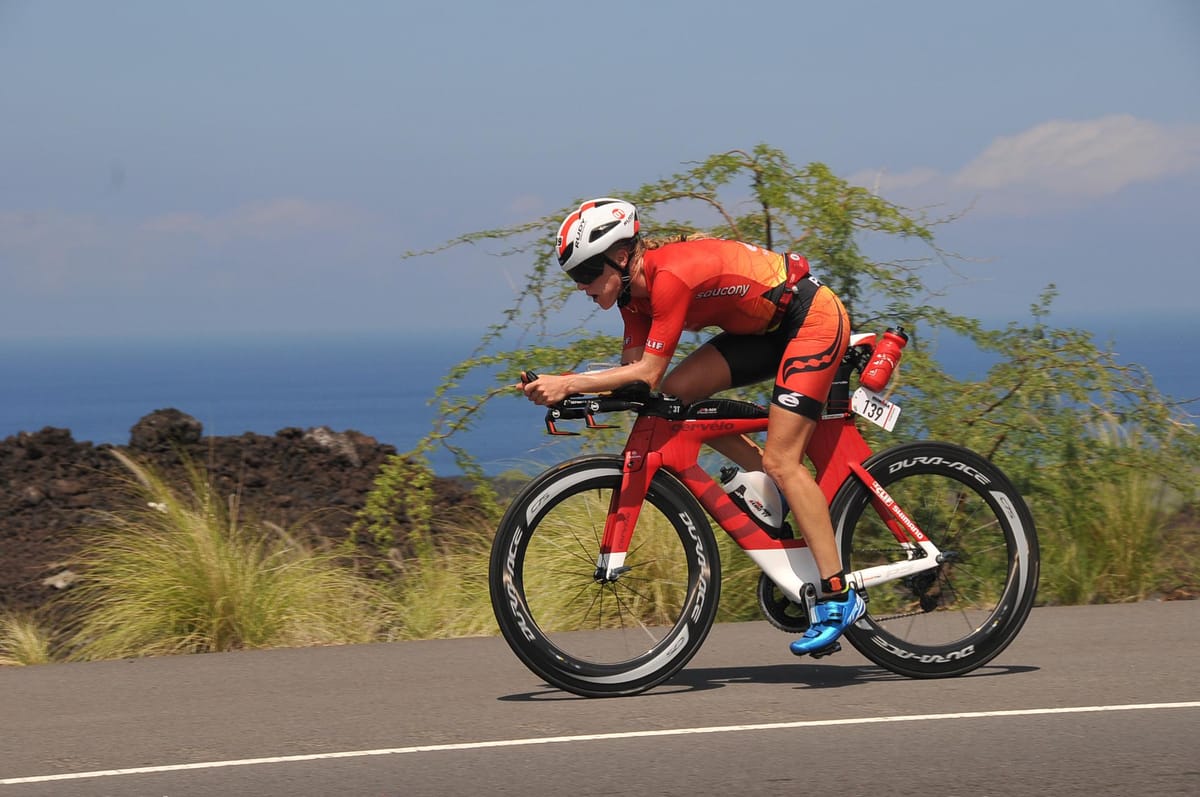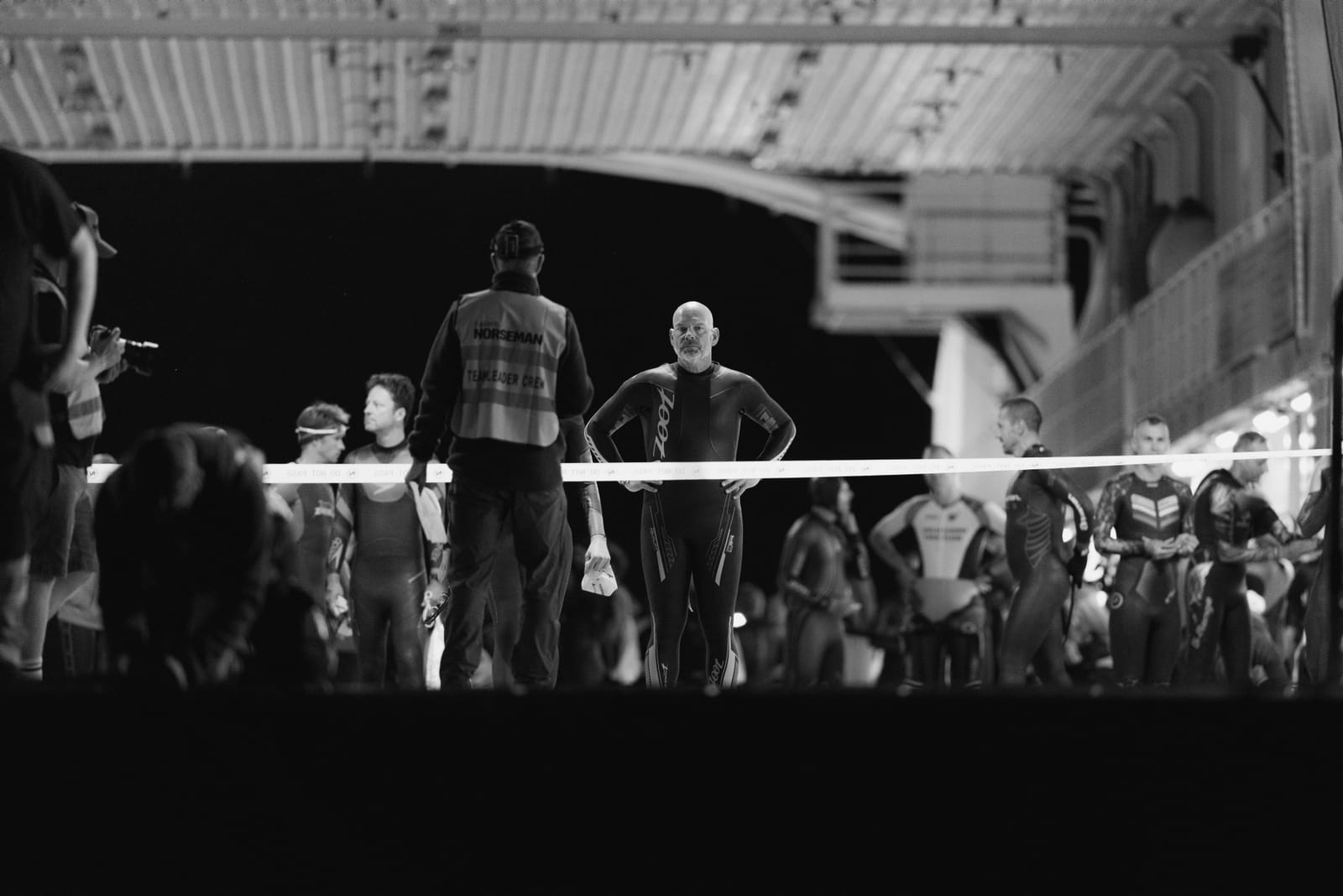Many of us ask ourselves the ‘dark questions’ in an endurance event. Those questions are not necessarily “why is Tim Reed wearing speedos” or “how do pro athletes manage to tweet during an event?” Those questions are “am I good enough? Was my training hard enough? and can I finish?” It’s about our personal limits that we set.
While you’re racing an Ironman event, most people are so focused on PBs and finish times, it can have a negative affect on your ceiling of performance at whatever level you’re competing at.
Whether you are a sub-eight hour Ironman finisher, or a thirteen hour Ironman finisher, it’s human nature to aim to punch through the ceiling of performance. Most of this is mental; like when Bannister and Landy battled with the sub 4 minute mile. Once the barrier was broken though, it continued to be surpassed as that mental hurdle had been conquered.
Athletes can use this same premise when reaching their own goals and I have seen athletes struggle with a time barrier in an Ironman for years. Once they’ve beaten that time, it continues to fade away.
The Dark Questions
The dark questions generally get asked at a few points in any race, whether it be an Ironman or a sprint distance event. It’s the point of the competition when things start hurting, fuel becomes low and competitors are drawing away. It may be at a point when none of these things occur, but anything and everything else negative that happens in a race, no matter how small, can be amplified in a race environment.
The heightened amplification of a race makes us question the training, the commitment and the sacrifices we’ve made to be in that race. In the lead up to a big race, these factors should never be questioned, yet no matter how prepared you are, no matter who you are, the question will be posed and the body and mind will require an answer.
How do we push through the negative energy we experience in a race?
This is the tough one, as everyone is wired differently and has different motivations for competing in sport; whether you are a pro athlete racing for the win, or an age grouper going for a PB or Hawaii spot.
Through my own experience in the sport and training, I’ve devised some of my own solutions to help me deal with these moment of darkness. I am lucky (or unlucky) enough to train by myself most of the time, which has its advantages, especially in an Ironman; as I generally ask myself the dark questions about five times a day! Sometimes it gets asked a couple of times before I even get out of the door.
A long solo eight hour brick-training day can do more for your mental strength and resolve than it does for your fitness base, as these sessions are primarily used for this purpose by a lot of coaches who adequately call them ‘brain’ sessions. Essentially the main point here is that the more times you ask yourself the dark questions in training, the easier they will be to manage on race day.
If you’re lucky enough to have a fun, social, supportive group to train with; you might find it beneficial in the lead up to a big race to get out and “lone wolf’ it for a day or two in the lead up to an Ironman, especially if it’s your first attempt at the distance.
When you ask yourself: Have I done enough training?
Trust me when I say that even the Pro athletes question themselves leading into a big race. I remember tackling my first European season when I was racing in my early 20s. I turned up at a race and everyone in transition looked like they had been carved out of stone! I actually thought about just turning around and going home just from looking at everyone flexing around. I questioned my training and preparation and general fitness at this point, but I stuck it out and finished third overall.
After this experience, I taught myself never to question my preparation again, and to have faith leading into a race. It’s not just before the race, but during the race that you’ll question your training. I have found that putting yourself in the “box” in training has a huge mental benefit when hitting this point. Embrace the point in training where you feel depleted, push through and come out the other side. This has a great effect on your confidence and your ability to push on through a bad race without questioning yourself.
Schedule dark training days to prepare for race day
Power output, time and heart rate are all metrics that help you in a race, and you can plan until your heart’s content, but when it comes to a PB or a race win, a lot goes out the window, and you have to push through to reach new heights. I like to use a philosophy called “Embrace the Pain.”
It sounds a bit corny, but the more you experience the pain and familiarise yourself with it, the better accustomed you become to dealing with it. In saying this I don’t mean crush yourself every session until you vomit blood, more like program in an ‘evil dark’ Ironman day where you expect to encounter these issues once a week. If it’s a cold winter’s day and you’re battling against horizontal rain and wind, use this as a positive to make you better prepared for your next Ironman race up in tropical Cairns or sunny Busselton!
Overall, everyone asks themselves the dark questions, but the more you practice training and racing while questioning yourself, the better you’ll be on race day.
Tips
- Have confidence and self belief in your training and bring a good support group who keep telling you how good you are every second of the day leading in!
- If you have a coach, take them with you to the race or if not, a short phone call on the day before is good to reaffirm your beliefs.
- When the ‘dark question’ comes up in a race, dig in to your highlight reel of misery in training and say to your self it could be a lot worse.
- Have a solid nutrition plan that you believe in and have practiced before, to believe that you will come out of a bad patch is most of the way there.
- Find a small little ‘form finder’ race a few weeks out from you’re A race to boost your confidence.
- Find a consistent local TT course and stick to it, knock it out when you are fit and unfit as it gives a great indicator of where you are before, and in the lead up to the race.
- As hard as it sounds, remain positive throughout a race, as negative energy takes energy, positive vibes create energy!








